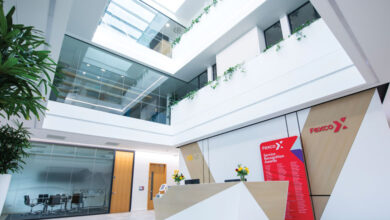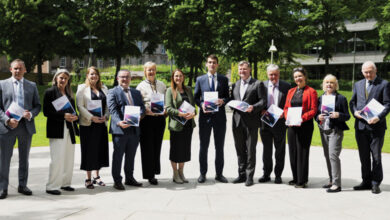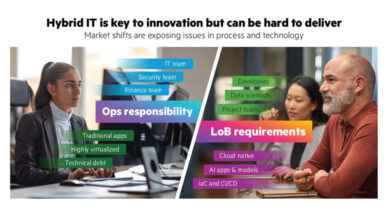Ireland climbs to fifth in DESI rankings

Ireland has continued its ascent of the European Commission’s Digital Economy and Society Index (DESI) rankings, ranking fifth for 2021, having been sixth in 2020 and 2018, seventh in 2019 and eighth in 2016 and 2017.
Founded in 2014, the DESI monitors the digital progress of EU member states each year, breaking each state’s performance down into four main categories: human capital; connectivity; integration of digital technology; and digital public services. Ireland is outperforming the EU average in all four of these categories.
In the Commission’s report on Ireland’s DESI score, particular mention is given to the performance of Irish SMEs and their level of digital activity, which falls under the integration of digital technology category. 66 per cent of Irish SMEs were found to have at least a basic level of digital intensity, compared to an EU average of 60 per cent; 32 per cent of SMEs are selling their goods and/or services online, compared to an EU average of 17 per cent; e-commerce accounts for 27 per cent of Irish SME turnover, compared to the EU average of 12 per cent. However, Irish enterprise was found to be behind in electronic information sharing (28 per cent of enterprises versus an average of 36 per cent), use of AI (14 per cent versus 25 per cent) and use of e-invoices (19 per cent against 32 per cent).
Ireland’s performance for connectivity improved in 2020, climbing above the EU average. Marked improvement was recorded in fixed very high-capacity network (VHCN) coverage, which increased from 35 per cent to 83 per cent. Ireland ranks behind the EU average in 4G coverage (99 per cent of populated areas versus 99.7 per cent), 5G readiness (30 per cent versus 51 per cent) and broadband price index (63 versus 69), but ahead on 5G coverage (30 per cent versus 14 per cent), fast broadband coverage (96 per cent of households versus 87 per cent), and overall fixed broadband take-up (78 per cent of households versus 77 per cent).
Ireland also scored well in the digital public services category, particularly in open data (92 per cent versus 78 per cent average) and providing digital public services for citizens (index score of 86 versus average of 75) and businesses (100 versus 84 on average). In terms of human capital, Ireland performs above the EU average in advanced digital skills, ICT specialists, female ICT specialists and ICT graduates, although the possession of basic digital skills (53 per cent of the population) are slightly lower than the EU average of 56 per cent.





